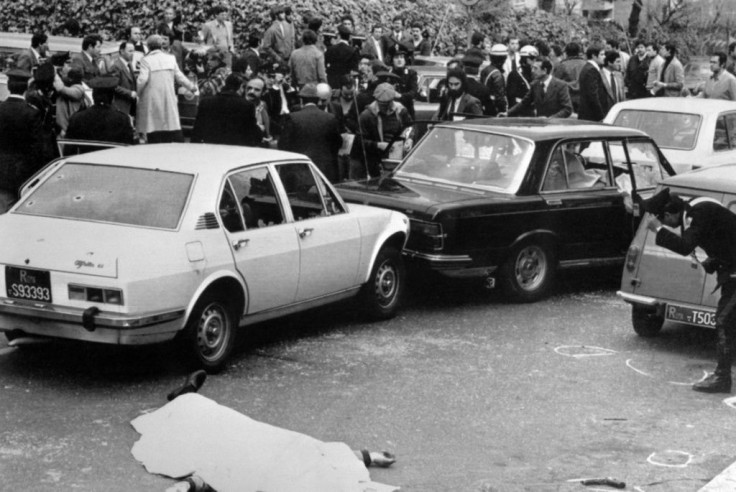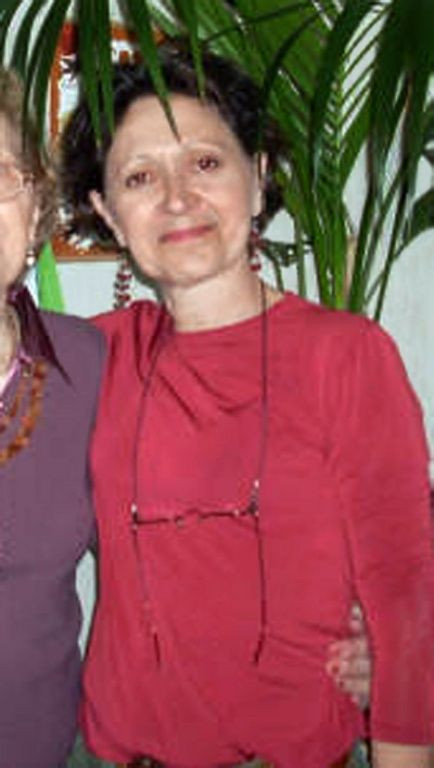France Detains Ex-members Of Red Brigades Sought By Italy
France on Wednesday detained seven former members of left-wing Italian extremist group the Red Brigades, in a gesture ordered by President Emmanuel Macron designed to resolve a long-standing source of tension with Rome.
France has long served as a haven for Red Brigades figures from the 1970s and 80s under a policy set by former Socialist leader Francois Mitterrand, which has caused tensions with Italy.
The so-called "Mitterrand Doctrine", adopted in 1985, offered asylum to the extremists providing they renounced violence and were not wanted in Italy for murder or other "crimes of blood."
A statement from the French presidency said Macron had authorised the detention of seven former Red Brigades figures, while another three were being actively sought.
Without naming them, the statement said they were wanted for the "most serious crimes" but it made clear that Macron had not renounced the Mitterrand Doctrine.
"France, also affected by terrorism, understands the absolute necessity of providing justice for victims," the statement said.
"With this transfer, it is also part of the urgent need to build a Europe of justice in which mutual confidence must be at the centre."
Ultra-leftist groups like the Red Brigades sowed chaos during the period in Italy known as the "Years of Lead" -- named after the number of bullets fired -- from the late 1960s to mid-1980s.

The Red Brigades were the most notorious and were responsible for kidnappings and murders, including of former prime minister Aldo Moro in 1978.
The presence of hundreds of figures in France who are wanted by Italy for violent crimes has caused tensions between the two neighbours for decades.
In 2019, far-right interior minister Matteo Salvini said he would write to Macron "to ask him to stop allowing terrorists who have massacred Italians to be free to drink champagne."
Relations between France and Italy were at a historic low at the time over a range of issues, but Macron sees new Italian Prime Minister Mario Draghi as a close pro-EU ally.
Draghi expressed his "satisfaction" in a statement, adding that the "perpetrators of very serious acts of terrorism have left wounds that are still open.
"The memory of these barbaric acts is still vivid in the Italian conscience," he added.

Italian media said Draghi had personally pressured Macron in a telephone call and had insisted on the importance of resolving the major irritant in bilateral relations.
Among those detained is Marina Petrella, 66, a former Red Brigades member whose extradition was blocked in 2008 by then president Nicolas Sarkozy after the intervention of his Italian-born wife Carla Bruni.
Petrella, who was in poor health in 2008, has been sentenced to life in prison for murder in Italy and Sarkozy's intervention provoked fury at the time in Rome.
Lawyer Irene Terrel, who represents Petrella and four other ex-Red Brigades figures, told AFP she was "outraged" by the arrests.
"Since the 1980s, these people have been under the protection of France. They've remade their lives here for 30 years in the full view and knowledge of everyone, with their children and their grandchildren .. and then in the early morning, they come looking for them, 40 years after the facts," she said.
She said that her clients would appeal against their detention.
The others arrested include Giorgio Petriostefani, Narciso Manenti, Roberta Capelli, Enzo Calvitti, Giovanni Alimonti and Sergio Tornaghi.
The three others being sought are Maurizio Di Marzio, Luigi Bergamin and Raffaele Ventura.
A French court will now examine the extradition requests.
France has extradited individual left-wing extremists and Red Brigades figures in the past.
Convicted murderer Maurizio Locusta was tracked down and extradited in 1987.
President Jacques Chirac then broke with the Mitterrand Doctrine by authorising the extradition of university lecturer Paolo Persichetti, who was linked to the Brigades, in 2002.
His government also authorised the extradition of notorious former Communist militant Cesare Battisti in 2004, but he fled to South America.
In 2019, Battisti was finally jailed in Italy for four murders committed in the 1970s after decades on the run, latterly in Brazil and Bolivia, where he was arrested.
Battisti was sentenced to life imprisonment for the murder of two Italian policemen, a butcher, and for planning the slaying of a jeweller who died in a shootout that left his teenage son in a wheelchair.
© Copyright AFP {{Year}}. All rights reserved.




















